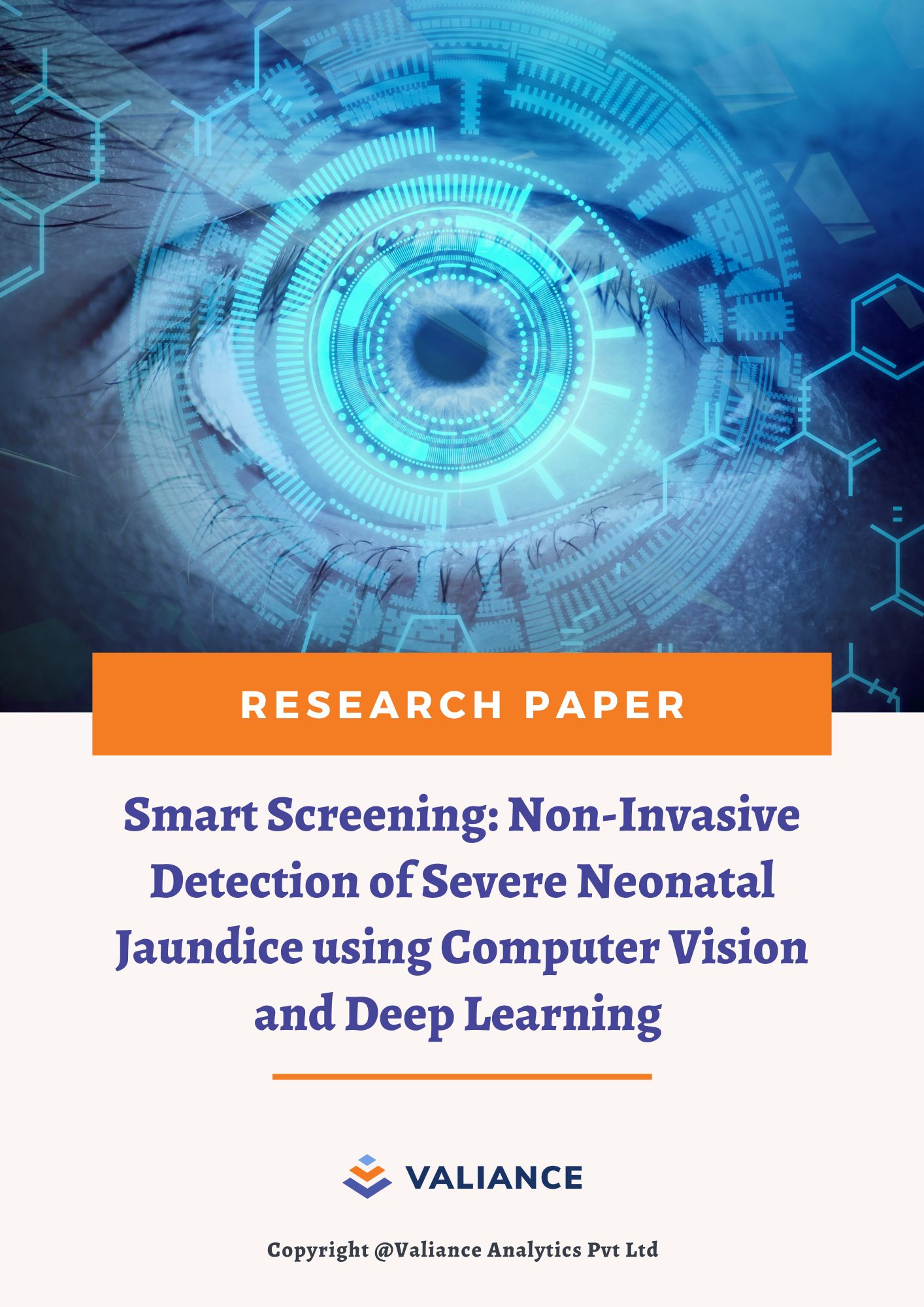Paper Title:
Smart Screening: Non-Invasive Detection of Severe Neonatal Jaundice using Computer Vision and Deep Learning
Authors:
Kartikya Gupta, Valiance Solutions
Vaibhav Sharma, Valiance Solutions
Shailendra Singh Kathait, Valiance Solutions
Summary:
The research paper titled “Smart Screening: Non-Invasive Detection of Severe Neonatal Jaundice using Computer Vision and Deep Learning” presents a novel approach to detecting severe neonatal jaundice through non-invasive techniques, using advanced computer vision and deep learning algorithms. Neonatal jaundice is a common condition among newborns, and early detection is critical in preventing severe complications, such as kernicterus, a form of brain damage. Traditionally, detection methods involve blood tests, which are invasive, time-consuming, and expensive. This study proposes an innovative solution that could address these limitations.
The research focuses on utilizing image processing techniques to analyze visual data of newborns’ skin to classify jaundice severity. The authors developed a custom convolutional neural network (CNN) model and compared its performance against several state-of-the-art transfer learning models, including MobileNet, EfficientNet, and Vision Transformer. These models were trained using a dataset of medical images specifically aimed at diagnosing jaundice. The deep learning models successfully identified the degree of jaundice with high accuracy, particularly in detecting severe cases that require medical attention.
One of the key advantages of this system is its non-contact, affordable nature, which makes it an ideal solution for resource-limited healthcare settings. The proposed model could easily be deployed in remote or underdeveloped areas, where access to traditional diagnostic tools may be restricted. By leveraging smartphone cameras or other imaging devices, healthcare professionals and caregivers can screen infants in a timely and efficient manner, enabling earlier intervention and reducing the risk of complications.
The paper also discusses the potential scalability of the system, as well as its possible integration into telemedicine platforms. The findings indicate that the solution could significantly enhance the early detection of jaundice while minimizing the need for invasive procedures. Additionally, the cost-effectiveness and ease of use of the system suggest its potential as a widespread tool in neonatal care.
In conclusion, this study highlights the promising role of computer vision and deep learning in healthcare, specifically in providing a non-invasive, affordable, and accessible solution for the early detection of severe neonatal jaundice. It represents a step forward in improving neonatal care, especially in areas with limited medical resources.



